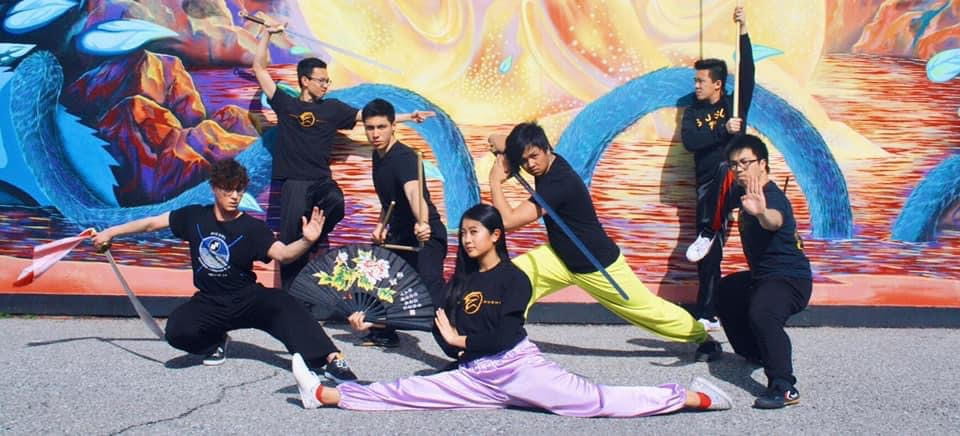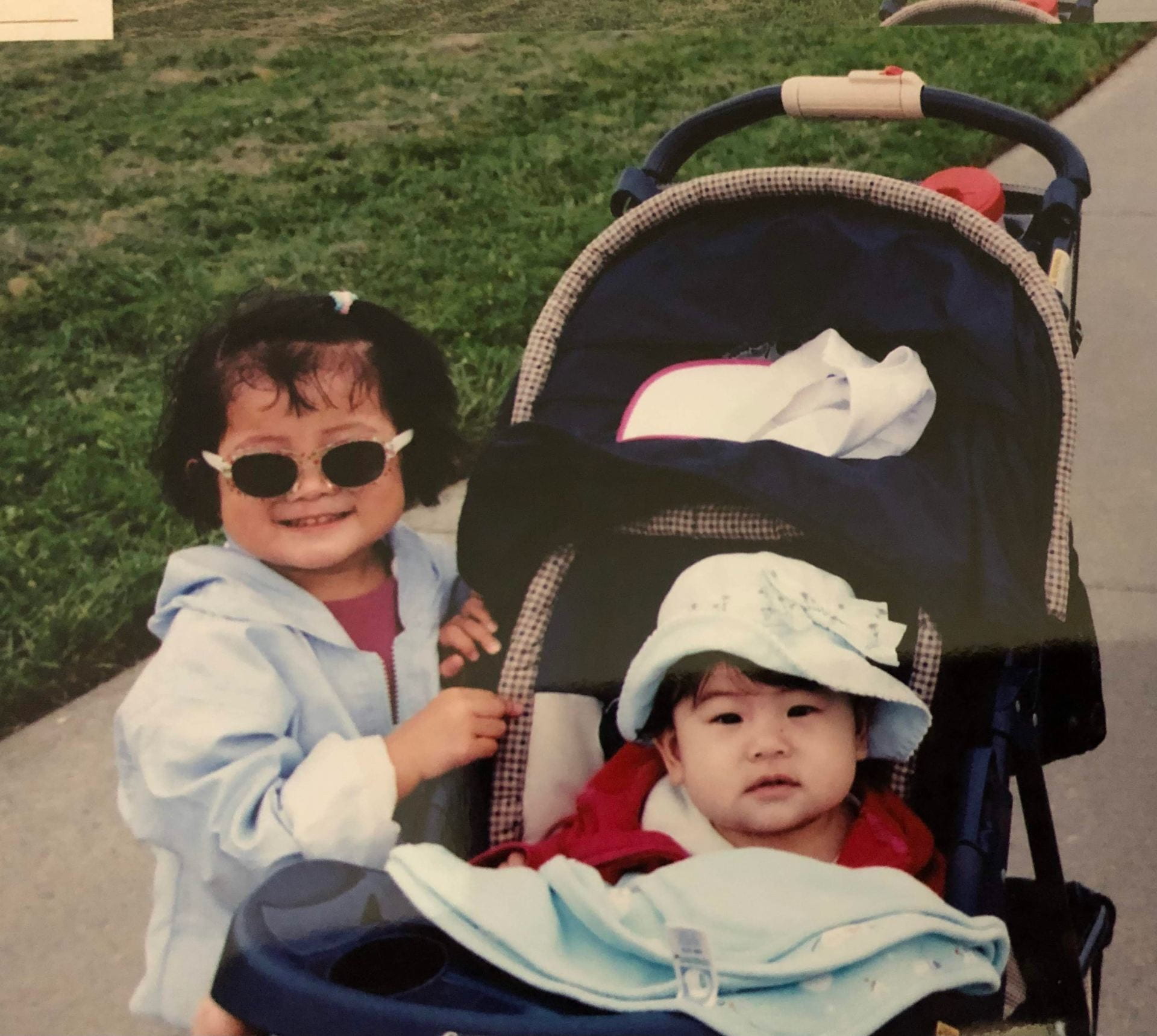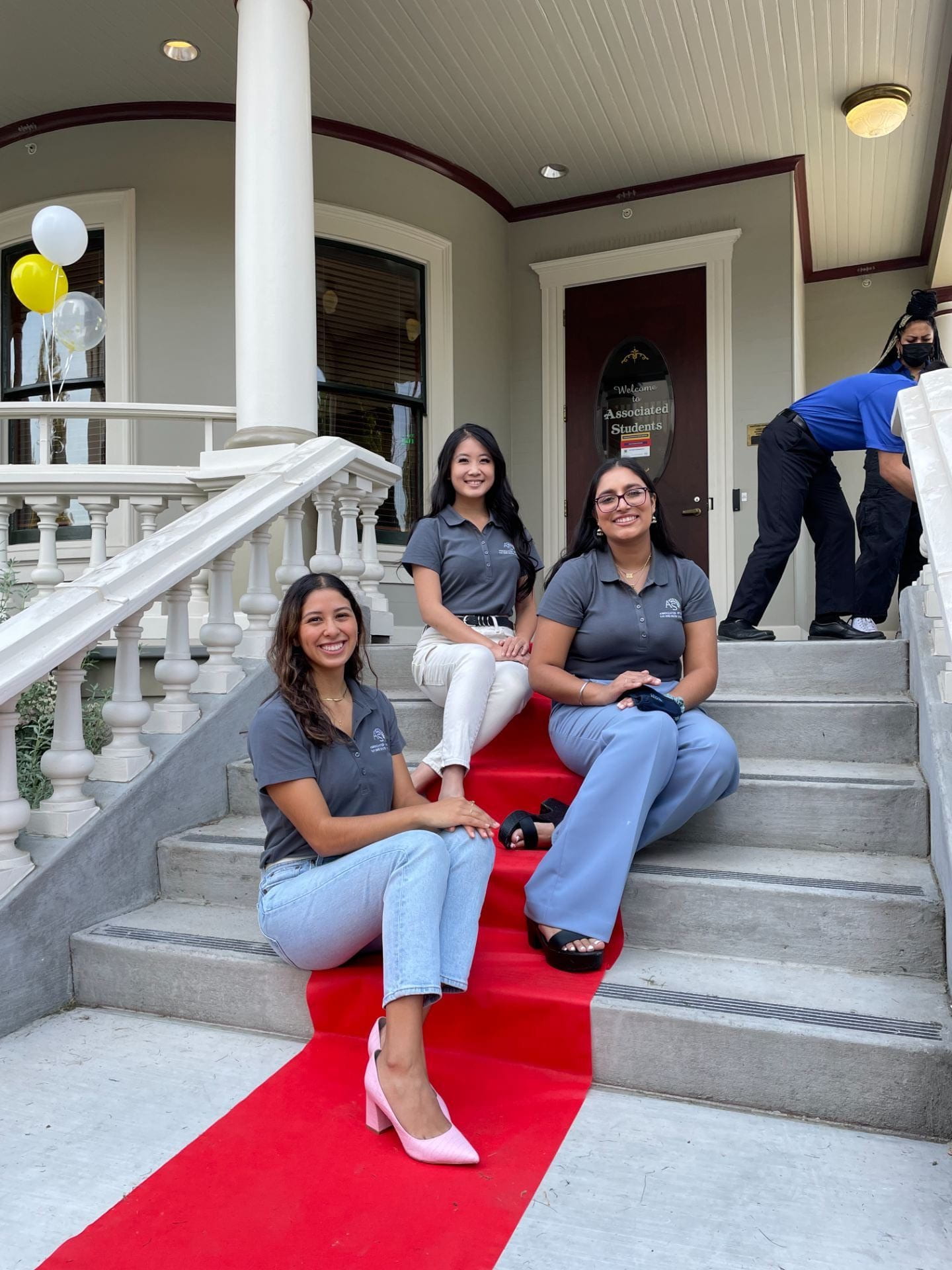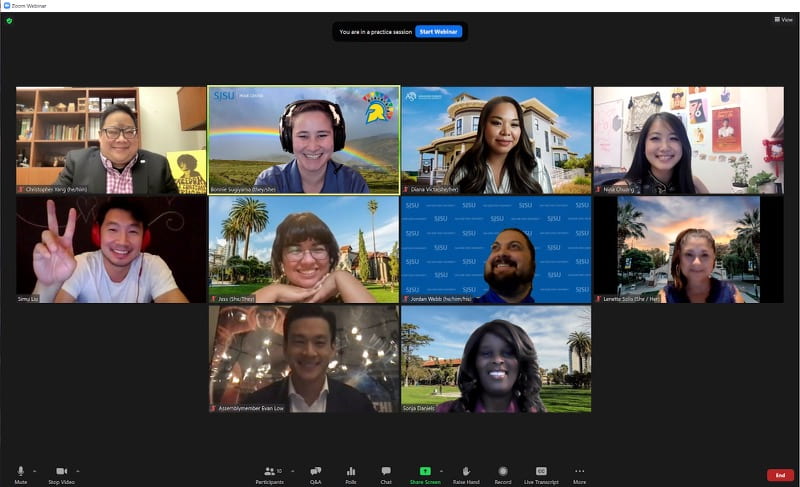Embracing My Inner Tigress Through Associated Students
by Nina Chuang, A.S. Vice President
One of my favorite activities is getting hot pot. It’s the best way, in my opinion, to gather our community — friends and/or family — to share a meal, spend time together and enjoy each other’s company. Being a huge lover of food, it was a no-brainer that I chose, in my first year, to go into Nutrition and Food Science. I loved attending classes to learn about the biology and chemical makeup of the food we eat.
However, there was a missing piece in my college experience: There wasn’t what felt like a home for me on campus! As a commuter student, I would wake up at 5am to take the 181 VTA bus from Fremont to San Jose. From the moment I step foot off the bus, I walk to the MLK, Jr. library. I would study for a while, attend class, and go back to my usual spot on the 4th floor of the library. By the time the evening hit, I would attend Spartan Wushu club training to reignite my passion for Chinese martial arts.
And it remained the same routine: library, class, library, class, library, Wushu. Then it was time to leave campus to take the last bus back to Fremont, hoping for a smooth ride without any complications.
My Stripes and Identity
My parents immigrated to the United States to pursue higher education. I am Taiwanese and Malaysian American. Being from a mixed East and Southeast Asian background, I grew up going to Chinese school on Saturdays, and large family gatherings on Sundays. I had the privilege of being raised in an area filled with diverse backgrounds and in a community that prioritized exposure and knowledge about one’s culture.
In this Chinese New Year of the Tiger, I can’t help but think of my tiger stripes. My stripes are steaming bowls of curry and Laksa on my Malaysian side, and delicious oyster noodles and braised beef on my Taiwanese side. The patterns of these stripes include making paper lanterns and eating Mooncake during the mid-Autumn festival, to wearing Qipao and Nyonya dresses during Chinese New Year and multicultural festivals in school and other places.
My tiger stripes include struggling to speak another language to family across the globe, in my broken ABC (American Born Chinese) Mandarin. My tiger stripes are my Taiwanese grandparents who grew up in the midst of a war and struggled through their education. My tiger stripes are my grandmother, who advocated for the right to education for Chinese Malaysian children.
My tiger stripes taught me the importance of knowing my heritage and representation. They make up my striped coat of experiences, memories, nuances, and stories.
Inclusion & Openness
Joining Associated Students, SJSU, has helped shape me to use my stripes to advocate for inclusion and openness.
I joined the A.S. Academic Affairs committee my sophomore year as the College Representative for the College of Health and Human Sciences. Through this committee, I learned the importance of having a seat at the table. I brought my perspective as a CHHS student in the discussions about advising, programs, and student success.
This committee role motivated me to run on the A.S. Board of Directors and subsequently serve as the Director of Student Resource Affairs in 2020-2021. I then had the privilege of speaking with a variety of liaisons and campus partners about student resources and academic success. In addition, I served on the Academic Senate that same year, working with faculty, staff, and administration to represent the student voice in shared governance.
Currently, as A.S. Vice President, I continue to serve on the Academic Senate, chair the biweekly A.S. Board of Director meetings, and help the Board work together at in-service events and training.
Breaking the Silence
Through these experiences, I grew empowered to speak up about global and local issues in the community. In the past two years, the violence against Asian communities has risen to shocking and heart-breaking levels.
From March 2020 to February 2021, there have been 3,795 reports of anti-Asian hate incidents. But this is not the beginning of the history of anti-Asian hate in America. It started from the Chinese Massacre of 1871, Chinese Exclusion Act, the Watsonville Riots of 1930, Executive Order 9066, to the violence and hate against South Asian Communities after 9/11. Our SJSU history was involved in Executive Order 9066, where the Uchida Hall Boys Gym in the early 1940s served as a processing center for Japanese Americans before they were forced into internment camps.
In 2021, after continually hearing devastating news about the violence against members of the Asian Pacific Islander Desi/American (APID/A) community, I had the privilege to use my platform in A.S. to elevate the efforts surrounding APID/A Spartans.
With event planning, professional and leadership skills put to work, I have collaborated with various groups on campus to host events that represent and advocate for Asian communities in these dark times.
I helped organizations plan Meet & Greet events, rally on campus, write letters of support addressing healthcare disparities, and meet with folks across campus to discuss APID/A Student Success.
Together, with your support, after more than 20 years of advocacy from the SJSU community, we were finally able to foster an additional Student Success Center for the Asian Pacific Islander Desi/ American community.
Thanks to your support, we were able to stage the APID/A community Lunar Year Welcome with Lion Dancing on 7th Street and pass a Letter of Support for the Lunar New Year Day Act, which would federally establish Lunar New Year as a Federal holiday. I also had the amazing privilege to introduce Shang-Chi actor Simu Liu and Assembly member Evan Low in our Fall 2021 Spartan Speaker Series. I also have the extreme honor of being your 2021 Homecoming Royalty and Queen (you know I had the rep the Qipao).
Home at Associated Students, SJSU
Associated Students is a place where all backgrounds and cultures are welcome. We empower one another to advocate for our communities, for accessibility, and for ourselves. These experiences taught me the power in inclusivity and having an open mind. Openness leads to connecting with people with different experiences and new ideas. Without openness, it can be difficult to see where inclusivity is needed. Everyone must be given a seat at the table to carry out the Associated Students’ Mission: to support and represent the students of San José State University by continuing the organization’s legacy of student advocacy and leadership; to enhance SJSU students’ education through high quality programs and services; and to prepare students as they move towards a thoughtful and purposeful life after graduation.
I was empowered through the skills I gained through A.S. and the leaders around me to give myself a seat at the table. As the first African-American Congresswoman Shirley Chrisholm said, “If they don’t give you a seat at the table, bring a folding chair”.
I encourage you as we grow as leaders in our communities, to have the openness to include and bring that folding chair to the table, excuse yourself or share your seat to uplift others’ voices or bring your own when you see a missing seat at the table.
My favorite seat is the Asian folding stool though. Which seat is yours?
P.S.: I wanted to give a shout out to the amazing ladies I have the privilege of working alongside in the A.S. Executive Team! Anoop Kaur, A.S. President and Maritza Molina, A.S. Controller: You inspire me everyday to keep learning and growing. <3







